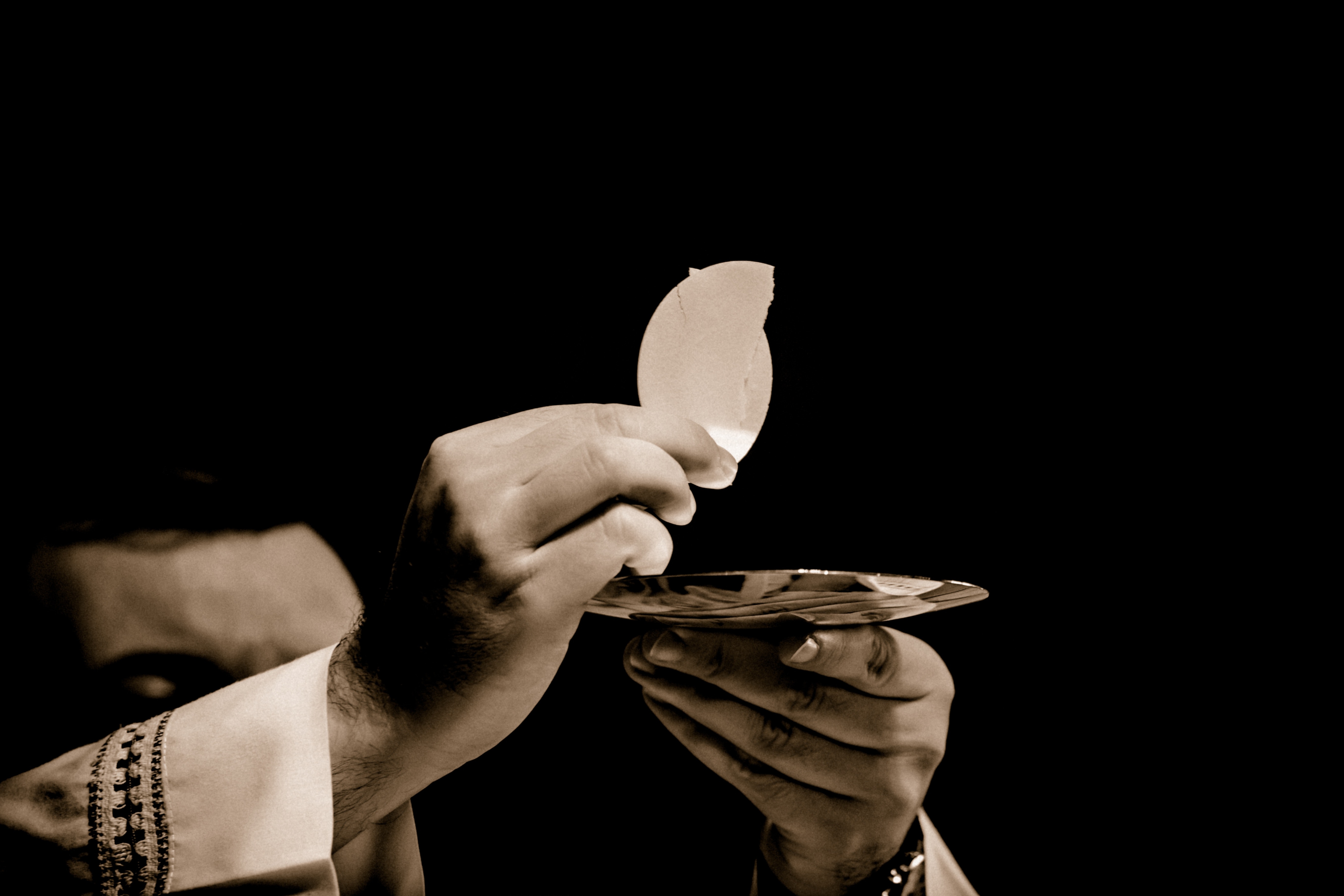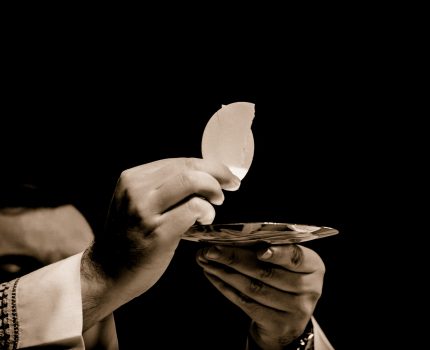We don’t hear the phrase The Means of Grace very often in the church culture of our day. I think that at least part of the reason for that is that we tend of think of grace – the unmerited favor of God by which He reaches down to us in our sin and saves us by granting us faith and repentance and uniting us to Jesus – we think of that grace as something that just “zaps” us, like a sudden, unexpected, electrical current to our souls.
But God has ordained “means” by which He ordinarily brings His grace to us. They’ve been called Pathways to Jesus – and that’s the way I like to think of them. In the Bible’s book of Acts, chapter two and verse 42 you read the “list” – if you will – of the means of grace. It’s the very beginning of the Christian Church in its New Testament form; and those who repented and believed in Jesus and were baptized into His name “devoted themselves to” (that is, they bent their daily and weekly schedules so as not to miss) “the Apostles’ doctrine” (the word of God as it focuses on the persona and work of Jesus Christ), “the breaking of bread” (probably the Lord’s Supper accompanied by a common meal), “the fellowship, and the prayers.” Each of these is a special “Pathway to Jesus”:
- The Word of God is number one! Remember that you’re not “getting it right” if you don’t see all of the Bible as a pathway to Jesus. “You search the Scriptures”, Jesus said to the religious leaders of his day (you can read this in the Gospel of John, chapter 5), “because you think that in them you have eternal life.” You think of the Word of God as some kind of magical charm that will give you everlasting life; but you utterly miss the fact that the Scriptures “testify of Me.” The power isn’t in the words themselves, the power is in Me – and the words are pathways to Me. The Word of God – rightly interpreted and applied – is a means of grace to point you to Jesus.
- Prayer is a means of grace: As we explained in a previous program, in true Christian prayer we are coming “boldly before the throne of grace” – where Jesus Himself reigns – in order that “we might receive mercy and grace to help us in our time of need.” That certainly sounds like a means of grace!
- Fellowship in a means of grace. When we fellowship with others in whom the Spirit of Christ lives, we are enjoying fellowship with Christ Himself. Clearly, that kind of fellowship is a pathway to Jesus.
- What we call the sacraments are means of grace. The Christian disciples had been baptized on the Day of Pentecost. Having received the Holy Spirit, they received water baptism as a sign and seal that they were cleansed in the blood of the Lord Jesus. (We also looked at Christian baptism in a previous Visit to the Pastor’s Study). Now those disciples “broke bread” together. This refers, at the least, to what we commonly call “The Lord’s Supper” or “Holy Communion.” It’s also a means of grace – a pathway to Jesus.
Some people prefer to use the term “ordinances” when they refer to Baptism and the Lord’s Supper; but the Lord has many other “ordinances” for His Church; and sacraments has been the more common term used in the history of the Christian Church. It comes from an old Latin term – sacramentum – which meant “an oath of allegiance”. In baptism the Lord declares His allegiance to us as He marks us out with His name; and we respond in faith by declaring and showing our allegiance to the Lord. In the Lord’s Supper the Lord shows His allegiance to us as the One who loved us and gave himself for us – even to the giving of His body and blood on the cross; and we respond by receiving the signs and seals of that work in bread and wine. We also renew our allegiance to the Lord as we examine ourselves, eat and drink, and give thanks.
The Westminster Shorter Catechism puts it well in question and answer number 96. What is the Lord’s Supper? The Lord’s supper is a sacrament, wherein, by giving and receiving bread and wine according to Christ’s appointment, his death is showed forth; and the worthy receivers are, not after a corporal and carnal manner, but by faith, made partakers of his body and blood, with all his benefits, to their spiritual nourishment and growth in grace.
And what I want you to be impressed with as you listen to today’s program is that The Lord’s Supper – rightly understood and rightly used – is a rich, glorious, encouraging, and constantly helpful discipline of a healthy Christian life. That’s the current series on these visits to the pastor’s study – The
Disciplines of a Healthy Christian Life.
My guest today is the retired – but still very active – Pastor Larry Wilson. Along with serving in several pastorates of Orthodox Presbyterian churches, he served for many years working with on that denomination’s Committee to Revise the Directory for Public Worship. He’s one of our “go to guys” for all questions about worship, including the sacraments. And, in the next few minutes, Pastor Larry will be drawing on his deep pool of wisdom to help us better appreciate what I’m calling The Discipline and Delight of the Lord’s Supper.
Pastor Larry Wilson, welcome to A Visit to the Pastor’s Study….
Here’s a link to the full program:
Yours enjoying communion with Christ and His people at the Lord’s Supper,
Pastor Bill

